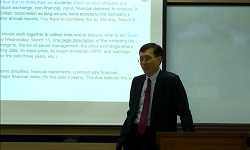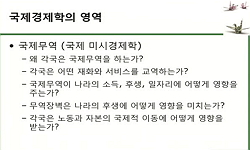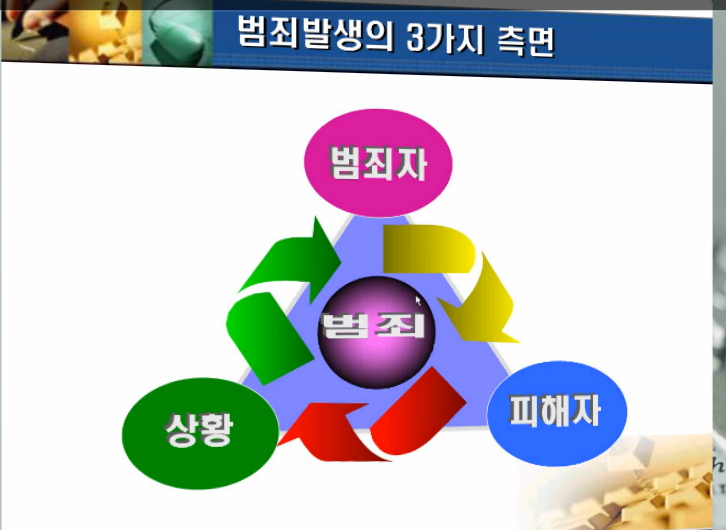본 연구에서는 보수주의 회계처리 방법이 기업의 이익지속성에 어떤 영향을 미치는지와 주식시장참여자로부터 어떠한 평가를 받는지를 검증하였다. 보수주의는 기업의 재무상태에 영향을 ...
http://chineseinput.net/에서 pinyin(병음)방식으로 중국어를 변환할 수 있습니다.
변환된 중국어를 복사하여 사용하시면 됩니다.
- 中文 을 입력하시려면 zhongwen을 입력하시고 space를누르시면됩니다.
- 北京 을 입력하시려면 beijing을 입력하시고 space를 누르시면 됩니다.
https://www.riss.kr/link?id=A95942246
- 저자
- 발행기관
- 학술지명
- 권호사항
-
발행연도
2004
-
작성언어
Korean
- 주제어
-
KDC
325.9
-
등재정보
KCI등재,SCOPUS
-
자료형태
학술저널
- 발행기관 URL
-
수록면
1-27(27쪽)
-
KCI 피인용횟수
130
- 제공처
- 소장기관
-
0
상세조회 -
0
다운로드
부가정보
국문 초록 (Abstract)
본 연구에서는 보수주의 회계처리 방법이 기업의 이익지속성에 어떤 영향을 미치는지와 주식시장참여자로부터 어떠한 평가를 받는지를 검증하였다. 보수주의는 기업의 재무상태에 영향을 미치는 경제적 사건에 불확실성이 개재된 경우 비용이나 손실은 즉각적으로 반영하지만 수익은 지연 인식하는 회계처리이다. 이러한 보수주의는 미래 불확실성을 감소시키려는 의도 하에 적용되는 회계원칙이지만 수익과 비용의 대응을 왜곡시켜 이익지속성 및 가치관련성을 떨어뜨리는 결과를 초래할 것으로 예상된다. 보수주의 회계처리에 따른 이익지속성을 분석하기 위하여 Sloan(1996)의 순이익, Ohlson(1995)의 초과이익 및 Feltham and Ohlson(1995)의 초과영업이익의 1차 자기회귀모형에 적용시켜 자기상관관계의 크기를 분석하였고, 보수주의 이익에 대한 주가배수를 검증하였다. 보수주의는 미래 불확실성을 감소시키기 위하여 순자산 또는 순이익을 과소계상하기 때문에 수익·비용의 대응을 왜곡시킨다. 이러한 왜곡은 이익지속성 및 가치관련성을 감소시킬 것이다. 1990년부터 2001년 사이에 금융업에 속하지 않는 468개 기업(3,579개 기업-년)을 대상으로 수행한 실증분석에 따르면, 첫째, 보수적으로 회계처리한 경우의 이익은 그렇지 않은 경우의 이익보다 지속성이 낮았으며, 둘째, 보수적으로 회계처리한 경우의 이익에 대한 주가배수는 그렇지 않은 경우의 이익에 대한 주가배수보다 더 작게 나타났다. 보수주의는 이익의 질의 하나로 제시되고 있으나 이익지속성 또는 미래이익예측력 등 다른 이익의 질을 나타내는 측정치와의 일관성이 결여된 것으로 보인다. 보수주의에 의한 회계처리문제는 재무제표 정보의 핵심구성요소라고 할 수 있는 순이익 및 순자산에 직접적인 영향을 미치기 때문에 기업의 경영의사결정에서 중요한 부분을 차지한다. 이러한 회계처리결과가 이익지속성에 어떤 영향을 미치는지와 보수주의 회계처리의 결과 산출된 순이익이 주식시장참여자로부터 어떠한 평가를 받는지에 관한 연구 과제를 실증적으로 검증하였다는 데 본 연구의 의의가 있다.
다국어 초록 (Multilingual Abstract)
This study examines how conservative accounting affects earnings persistence and equity valuation. Under conservative accounting, expenses or losses are immediately recognized while revenues or gains are not until uncertainty surrounding economic even...
This study examines how conservative accounting affects earnings persistence and equity valuation. Under conservative accounting, expenses or losses are immediately recognized while revenues or gains are not until uncertainty surrounding economic events is resolved. Thus, conservatism is likely to distort revenue-expense matching and accordingly diminish persistence and value relevance even though its purpose is to reduce uncertainty. To examine the effect of conservatism on earnings persistence and pricing multiples, we compare (1) the first autocorrelation of earnings, Ohlson`s(1995) abnormal earnings, and Feltham and Ohlson`s(1995) abnormal operating earnings, and (2) pricing multiples on them between more conservative firms and less conservative firms. Given that periodic matching between revenues and expenses is distorted by conservatism, it is hypothesized that earnings persistence and/or pricing multiples on earnings are smaller for more conservative firms than for less conservative firms. The sample consists of 468 non-banking firms(3,576 firm-years) listed on Korean Stock Exchange over the period of 1991-2001. Empirical findings support our expectation. Specifically, (1) earnings for more conservative firms are less persistent than those for less conservative firms, and (2) pricing multiples on earnings are smaller for more conservative firms than for less conservative firms. Though conservatism has been suggested as one of the indicators representing earnings quality in most financial statement analysis texts, it is also true that it lacks consistency with other indicators of earnings quality such as earnings persistence and future earnings predictability. To the extent that conservatism directly affects earnings and equity book value, which are core summary measures of financial statements, policy makers should pay more careful attention to unintended consequences of conservatism when they set or revise accounting standards. This study contributes to the literature by documenting the effect of conservatism on earnings persistence and equity valuation.
참고문헌 (Reference)
1 "Valuation and clean surplus accounting for operating and financial activities" 11 : 689-731, 1995
2 "The time series behavior of earnings" 8 : 62-99,
3 "The effect of international institutional factors on properties of accounting earnings" 29 : 1-51, 2000
4 "The conservatism principle and the asymmetric timeliness of earnings" 24 : 3-37, 1997
5 "The changing time-series properties of earnings, cash flows and accruals: Has financial reporting become more conservative?" 29 : 287-320, 2000
6 "The Analysis and Use of Financial Statements, 2nd ed" 1998
7 "Implementing residual income valuation with linear information dynamics" 74 : 1-28, 1999
8 "Have financial statements lost their relevance?" 37 : 319-352, 1999
9 "Financial Statement Analysis and Security Valuation." McGraw-Hill 2001
10 "Effects of persistence of abnormal earnings on relative pricing multiples on book value of equity and earnings" 24 : 61-79, 1999
1 "Valuation and clean surplus accounting for operating and financial activities" 11 : 689-731, 1995
2 "The time series behavior of earnings" 8 : 62-99,
3 "The effect of international institutional factors on properties of accounting earnings" 29 : 1-51, 2000
4 "The conservatism principle and the asymmetric timeliness of earnings" 24 : 3-37, 1997
5 "The changing time-series properties of earnings, cash flows and accruals: Has financial reporting become more conservative?" 29 : 287-320, 2000
6 "The Analysis and Use of Financial Statements, 2nd ed" 1998
7 "Implementing residual income valuation with linear information dynamics" 74 : 1-28, 1999
8 "Have financial statements lost their relevance?" 37 : 319-352, 1999
9 "Financial Statement Analysis and Security Valuation." McGraw-Hill 2001
10 "Effects of persistence of abnormal earnings on relative pricing multiples on book value of equity and earnings" 24 : 61-79, 1999
11 "Earnings, book values, and dividends in equity valuation" 11 : 661-687, 1995
12 "Earnings quality." 17 : 97-110, 2003
13 "Do stock prices fully reflect information in accruals and cash flows about future earnings?" 71 : 289-316, 1996
14 "Conservative accounting and equity valuation" 29 : 125-149, 2000
15 "Conservatism in accounting part II:Evidence and research opportunities" 17 : 278-301, 2002
16 "Changes in the value-relevance of earnings and book values over the past forty years" 24 : 39-67, 1997
17 "Biases and lags in book value and their effects on the ability of the book-to-market ratio to predict book return on equity" 38 : 127-148, 2000
18 "Accounting conservatism, the quality of earnings, and stock returns" 77 : 237-264, 2002
19 "Accounting Theory. 5th ed." MA 1992
20 "A study on earnings quality" 8 : 221-249, 1998
21 "A comparison of the valuation method in estate tax law and accounting-based valuation method for unlisted common stocks." 23 : 57-79, 1998
22 "1992 Accounting recognition and the relevance of earnings as an explanatory variables for returns" 821-842,
동일학술지(권/호) 다른 논문
-
조세비용과 비조세비용의 상충관계가 재무보고이익과 세무보고이익의 차이에 미치는 영향
- 한국회계학회
- 전규안 ( Kyu An Jeon )
- 2004
- KCI등재,SCOPUS
-
- 한국회계학회
- 황규영 ( Gyu Young Hwang )
- 2004
- KCI등재,SCOPUS
-
감사인 지정이 기업의 이익조정에 미치는 영향에 관한 연구
- 한국회계학회
- 안영균 ( Yeong Kyun Ahn )
- 2004
- KCI등재,SCOPUS
-
유동발생의 예측오차와 감사인 유형에 따른 재량적 발생의 정보성 차이
- 한국회계학회
- 나종길 ( Chong Kil Nah )
- 2004
- KCI등재,SCOPUS
분석정보
인용정보 인용지수 설명보기
학술지 이력
| 연월일 | 이력구분 | 이력상세 | 등재구분 |
|---|---|---|---|
| 2020 | 평가예정 | 계속평가 신청대상 (등재유지) | |
| 2015-01-01 | 평가 | 우수등재학술지 선정 (계속평가) | |
| 2011-01-01 | 평가 | 등재학술지 유지 (등재유지) |  |
| 2009-01-01 | 평가 | 등재학술지 유지 (등재유지) |  |
| 2007-01-01 | 평가 | 등재학술지 유지 (등재유지) |  |
| 2005-01-01 | 평가 | 등재학술지 유지 (등재유지) |  |
| 2002-01-01 | 평가 | 등재학술지 선정 (등재후보2차) |  |
| 1999-07-01 | 평가 | 등재후보학술지 선정 (신규평가) |  |
학술지 인용정보
| 기준연도 | WOS-KCI 통합IF(2년) | KCIF(2년) | KCIF(3년) |
|---|---|---|---|
| 2016 | 1.96 | 1.96 | 2.48 |
| KCIF(4년) | KCIF(5년) | 중심성지수(3년) | 즉시성지수 |
| 2.65 | 2.74 | 5.829 | 0.22 |






 KISS
KISS







